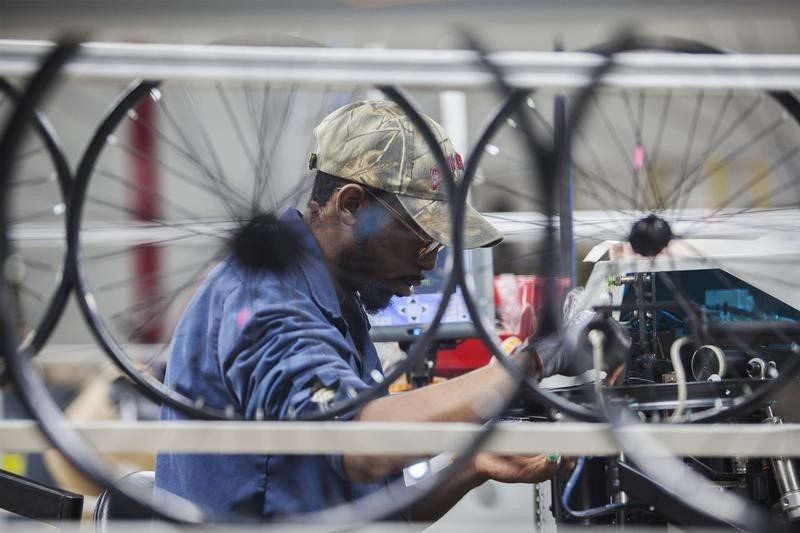By David Milliken
LONDON (Reuters) - Britain's manufacturing sector emerged from its longest decline since the financial crisis last month, after a boost from December's election result, though weak European demand and Brexit concerns muted the optimism, a survey showed on Monday.
The IHS Markit/CIPS purchasing managers' index (PMI) rose to the no-change level of 50.0 from 47.5 in December, slightly stronger than an earlier "flash" reading for January of 49.8 which had shown the index just within contraction territory.
"Reduced levels of political uncertainty following the general election led to mild recoveries in new orders and business confidence and a stabilization of production volumes," IHS Markit said.
December's reading was the second-lowest since 2012, and the manufacturing PMI had been below 50 since May, the longest such unbroken run since 2009.
Manufacturing makes up 10% of the British economy, and the most recent official data showed the sector shrank by 2.0% in the 12 months to the end of November.
January's rebound matches other data since Prime Minister Boris Johnson won an unexpectedly big parliamentary majority in a Dec. 12 election, reducing short-run uncertainty over Brexit and the government's political direction.
Bank of England Governor Mark Carney said last week that data in early 2020 had been good enough to keep the BoE from cutting interest rates after weakness in late 2019, but the survey numbers would need to be confirmed by official figures.
Past PMI surveys have sometimes overestimated the scale of upturns and downturns in the economy.
New orders grew overall at the fastest rate since April 2019, but export orders continued to decline, which manufacturers blamed on weak economies in mainland Europe.
After leaving the European Union at 2300 GMT on Jan. 31 following 47 years of membership, Johnson now has until the end of the year to negotiate a trade deal that will avoid new tariffs on British goods.
However, the car industry and other sectors which rely on just-in-time delivery worry that future border checks will make their British operations uncompetitive.
"Optimism remained low compared to the historical standards of the survey, in part due to ongoing uncertainty at some firms about the impact of Brexit," IHS Markit said.
The BoE said some new trade frictions will be unavoidable, and estimates Britain's sustainable annual growth rate over the coming years will fall to 1.1% from an average of 1.6% since the financial crisis.
